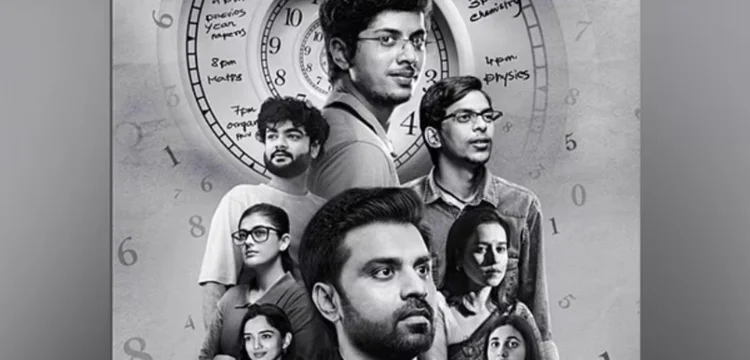Watching the final episode of “Kota Factory” at three in the morning may have heightened my emotions, but it genuinely left me in tears. Despite never having been to Kota or dreamed of IIT, the show resonates deeply with many, capturing the universal pressures faced by youth, the significance of friendships, and the special bond with a mentor like ‘Jeetu Bhaiya.’
One poignant moment comes towards the end when Meena remarks, “Jeetu bhaiya jeevan ka path dete hai (he gives life lessons).” This line rings true, especially as the third season beautifully illustrates the mentor-mentee relationship and tackles the crucial issue of mental health, which deserves more attention.
The song ‘Jo Bhi Hoga Ladd Lunga’ encapsulates the show’s essence. Students moving to Kota for IIT or NEET preparation need immense grit and resilience. The exams are challenging, and failures are inevitable, but perseverance is key.
“Kota Factory 3” shifts the focus from celebrating victories to celebrating the preparation itself. “Jeet ki tayari nahi, tayari hi jeet hai” (Preparation itself is victory) – says Jeetu Bhaiya. This season emphasizes aiming high rather than just dreaming, a sentiment familiar to many competitive exam aspirants.
Read More: Kubra Khan Urges Pakistani Men to Learn How to Love from Korean Dramas
This season, Jitendra Kumar’s character grapples with balancing the roles of a supportive ‘bhaiya’ and a professional ‘sir.’ The previous season’s tragic end, with a student’s suicide, leaves Jeetu Bhaiya deeply affected. His sessions with a therapist highlight the importance of seeking help, a message particularly relevant given the recent surge in suicides in Kota. The show could serve as an eye-opener for parents, teachers, and anyone involved in shaping a student’s life.
The creators deserve praise for showing that struggle, while subjective, impacts everyone uniquely. Mediocre students work tirelessly to keep up with peers, while the top students face the pressure of maintaining their grades. Some students must choose between studying and supporting their families, adding to their burdens. First loves and heartaches further complicate their lives. Although the climax felt somewhat forced, many viewers likely saw it coming.
However, the introduction of one student’s parents and the ensuing melodrama felt out of place in a show like this. Similarly, Vaibhav’s monologue about exam dates came across as too loud and forced, ultimately failing to make a significant impact. Despite these minor flaws, “Kota Factory 3” continues to resonate with its audience, shedding light on the real struggles of students in a competitive environment.











